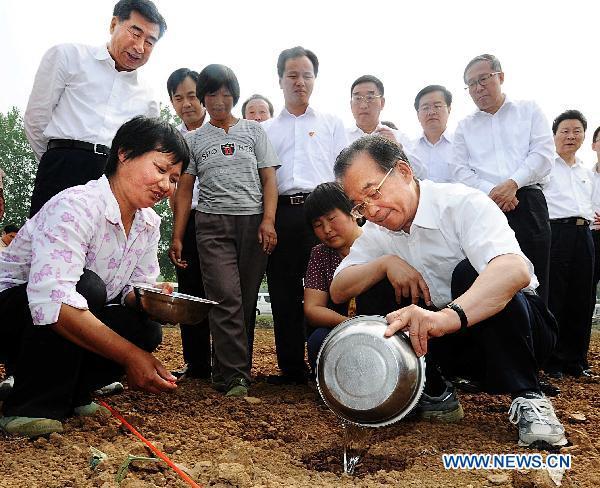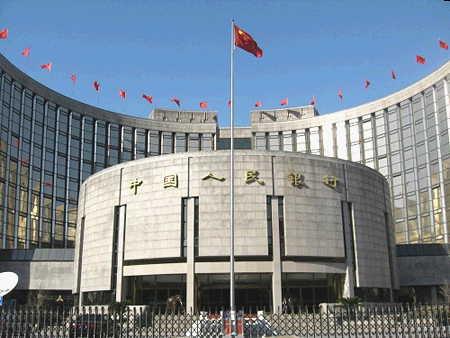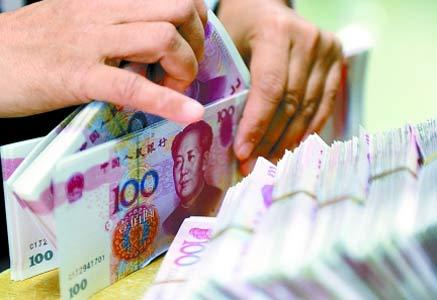
Follow the stock market. Get the updates you need to make sense of the dynamic, global economy. China.org.cn brings you the economic highlights for this week:

Chinese Premier Wen Jiabao (R front) waters a corn field in Yangwan Village, Hongshanzui Town of Xiangyang City in central China's Hubei Province, June 4, 2011. Wen made an inspection tour in the drought-striken provinces of Jiangxi, Hunan and Hubei from June 2 to 4.
1) Wen Jiabao: Expand construction of lake water conservation infrastructure
Speaking on a trip last week to drought-afflicted parts of central China, Premier Wen Jiabao called for full support of drought relief efforts and expanded construction of water conservation projects. The drought affects overall economic and social development, including food security, commodity prices, economic growth and social stability, Wen said. All levels of government should give their utmost to provide drought relief to farmers, guarantee water supplies and ensure farmers do not see a drop in their standard of living or income. Vice Premier Hui Liangyu, who head s China s office of flood control and drought relief, accompanied Wen on the three-day tour, which included visits to drought-hit areas in Jiangxi, Hunan and Hubei provinces. The region has seen its worst drought in over 50 years this year.

Stubborn inflation may spur China s central bank to raise interest rates again this month.
2) 13 institutions predict 0.25% interest hike in June
Stubborn inflation may spur China's central bank to raise interest rates again this month. According to research conducted by China Business News, 13 of 16 institutions forecasting Chinese inflation rates predicted a quarter percentage-point rate hike in June. If implemented, such an increase would bring interest rates for one-year deposits and loans to 3.50 percent and 6.56 percent, respectively. Analysts predict inflation to continue to worsen oven the next two months as high producer prices and commodity price pressures caused by the drought in central China begin to translate into higher prices for consumers, with the consumer price index perhaps reaching 6 percent in June and July, Chang Jian, China economist at Barclays Capital, told the Global Times on Monday. The People's Bank of China has hiked benchmark interest rates for one-year deposits four times, from 2.25 percent to the current level of 3.25 percent, since last October.

Bank savings are on the move again.
3) Hundreds of billions of RMB flee savings deposits, interest hike pressure increases
Bank savings are on the move again. According to central government statistics, renminbi savings deposits grew by 337.7 billion yuan in April, increasing 832.5 billion yuan less than last year. Meanwhile, banks saw sharp drops in residential saving, with household savings decreasing by 467.8 billion yuan. (Residential savings, a slightly wider measure than household savings, includes deposits by small family businesses.) Despite analyst claims that a decrease in savings will give a boost to stocks, the massive migration of capital out of Chinese banks has failed to stimulate a rebound in equity markets.



